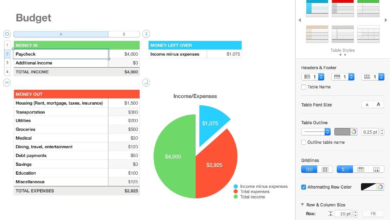How to Set Up a Private Cloud Using Nextcloud
Nextcloud private cloud setup. Learn to create a secure, self-hosted cloud with full data control in this step-by-step installation guide.

Setting up a private cloud using Nextcloud gives you complete control over your data while offering powerful file-sharing and collaboration tools. Unlike public cloud services that store your information on third-party servers, Nextcloud allows you to host your own secure Private Cloud storage on your preferred hardware. Whether you’re an individual looking for a self-hosted alternative to Google Drive or a business needing a customizable, GDPR-compliant solution, Nextcloud provides enterprise-grade features like end-to-end encryption, real-time document editing, and seamless cross-device synchronization all while keeping your data private.
The best part about setting up a private cloud using Nextcloud is its flexibility. You can install it on anything from a Raspberry Pi for personal use to a high-performance server for business applications. With built-in support for apps like calendars, contacts, and video conferencing, Nextcloud goes beyond simple file storage, transforming into a full-featured productivity hub. This guide will walk you through the entire setup process, from choosing the right hardware to optimizing security and performance, so you can enjoy a truly independent Private Cloud solution tailored to your needs.
How to Set Up a Private Cloud Using Nextcloud
Understanding Nextcloud and Its Benefits
Nextcloud is a powerful, open-source platform that allows users to create their own Private Cloud infrastructure. Unlike public cloud services like Google Drive or Dropbox, Nextcloud gives you complete ownership of your data, eliminating reliance on third-party providers. One of the biggest advantages of Nextcloud is its modular design, which supports file storage, calendar synchronization, contact management, and even video conferencing. Additionally, it offers end-to-end encryption, ensuring that only authorized users can access sensitive files. Since it is self-hosted, you can scale storage as needed without worrying about subscription fees.
Choosing the Right Hardware for Nextcloud
Before installing Nextcloud, you need to select the right server hardware based on your storage and performance needs. For personal use, a Raspberry Pi or an old computer with at least 4GB RAM and a dual-core processor can suffice. However, for business use, a dedicated server with SSD storage, 8GB+ RAM, and a quad-core CPU is recommended. If you prefer a plug-and-play solution, consider purchasing a pre-configured Nextcloud appliance from providers like Nextcloud Box or ownCloud. These devices come with optimized hardware and pre-installed software, reducing setup time.
Selecting an Operating System and Web Server
Nextcloud runs on various operating systems, including Linux (Ubuntu, Debian, CentOS), Windows Server, and macOS. For optimal performance and security, Linux is the preferred choice due to its stability and open-source nature. You’ll also need a web server such as Apache or Nginx to host Nextcloud. Apache is easier to configure for beginners, while Nginx offers better performance for high-traffic setups. Additionally, a database system like MySQL or MariaDB is required to store user data and configurations.
Installing Nextcloud on Your Server
The installation process varies depending on your OS, but the most common method is using the Nextcloud Snap package, which automates the setup. Alternatively, you can manually install it via the command line. For Ubuntu/Debian, the installation involves updating the system, installing Apache, MySQL, and PHP, then downloading and configuring Nextcloud. Once installed, you can access the Nextcloud web interface to complete the setup by creating an admin account and specifying the data directory.
Configuring Storage and Security Settings
After installation, the next step is configuring storage options. You can use local storage, external hard drives, or even Network-attached storage (NAS) for scalability. Nextcloud also supports S3-compatible object storage for enterprise setups. Security is crucial for a Private Cloud, so enable HTTPS using Let’s Encrypt SSL certificates. Configure two-factor authentication (2FA) and set up firewall rules to restrict unauthorized access. Regularly updating Nextcloud and its dependencies ensures protection against vulnerabilities.
Setting Up User Accounts and Permissions
Nextcloud allows multi-user access with customizable permissions. As an admin, you can create user groups, assign storage quotas, and control file-sharing permissions. The collaboration features include real-time document editing, shared calendars, and team chat via Nextcloud Talk. For businesses, integrating LDAP or Active Directory simplifies user management by syncing existing credentials. Fine-grained access control ensures that sensitive data is only accessible to authorized personnel.
Optimizing Performance and Backup Strategies
To enhance Nextcloud performance, enable OPcache and Redis caching, which speed up PHP execution and database queries. If multiple users access the system, consider using a load balancer for better distribution of traffic. Regular backups are essential to prevent data loss. Use BorgBackup or rsync for automated backups stored on a separate NAS or Private Cloud storage. Testing disaster recovery procedures ensures quick restoration in case of failures.
Extending Nextcloud with Apps and Integrations
Unlocking Advanced Functionality
Nextcloud’s built-in app ecosystem transforms your private cloud into a powerful productivity suite. From Collabora Online for real-time document editing to Nextcloud Talk for secure video conferencing, these add-ons expand core features. The Nextcloud App Store offers hundreds of free and premium extensions, letting you customize your cloud for personal or business needs.
Boosting Collaboration with Productivity Tools
Integrate calendar (Nextcloud Calendar), contacts (Nextcloud Contacts), and task management (Nextcloud Deck) for seamless workflow organization. OnlyOffice or Collabora Online enable Microsoft Office-like editing, while Nextcloud Mail provides a private email client. These tools sync across devices, ensuring team accessibility without relying on third-party services.
Strengthening Security with Specialized Add-Ons
Enhance data protection with apps like Two-Factor Authentication (2FA), Brute Force Protection, and End-to-End Encryption. Nextcloud Passwords serves as a self-hosted password manager, while Auditing/Logging apps track file access for compliance. These integrations ensure enterprise-grade security tailored to your privacy requirements.
Connecting with External Services
Nextcloud supports integrations with Dropbox, Google Drive, and Amazon S3 for hybrid cloud setups. Developers can leverage Nextcloud’s REST API to connect with CRM systems (e.g., Nextcloud CRM), project tools (e.g., Nextcloud Deck), or automation platforms like Zapier. This flexibility bridges gaps between self-hosted and cloud-based workflows.
Optimizing Storage with Backup
Expand storage options with External Storage Support, linking NAS drives, FTP servers, or S3-compatible clouds. Apps like Nextcloud Backup automate data protection, while Rclone integration enables encrypted offsite backups. These tools ensure scalability and disaster recovery without vendor lock-in.
Customizing with Themes
Personalize your cloud’s interface with dark mode themes, custom branding, and dashboard widgets. Apps like Nextcloud Forms simplify survey creation, while Nextcloud Maps adds geolocation features. These tweaks enhance usability while maintaining full control over your private cloud environment.
Read More: How to Speed Up Your MacBook Without Extra Software
Conclusion
Setting up a private cloud using Nextcloud empowers you with complete data ownership, robust security, and customizable cloud storage tailored to your specific needs. Unlike commercial cloud services, Nextcloud puts you in full control, allowing you to scale storage, enhance privacy with end-to-end encryption, and integrate powerful collaboration tools all while avoiding subscription fees. Whether for personal use or business applications, this self-hosted solution delivers enterprise-grade functionality without compromising on security or flexibility.
By following this guide, you’ve learned that setting up a private cloud using Nextcloud is an accessible yet powerful way to take charge of your digital ecosystem. From selecting the right hardware to optimizing performance and security, Nextcloud provides a reliable alternative to third-party cloud providers. As data privacy concerns continue to grow, having your own private cloud ensures that your files remain secure, accessible, and entirely under your control making Nextcloud an ideal long-term solution for both individuals and organizations.
FAQs
What is Nextcloud, and why should I use it?
Nextcloud is a self-hosted private cloud platform that offers secure file storage, collaboration tools, and data control, making it a great alternative to public cloud services.
What hardware do I need to run Nextcloud?
For personal use, a Raspberry Pi or a basic PC with 4GB RAM works, while businesses should use a dedicated server with SSD storage and 8GB+ RAM for better performance.
Can I access Nextcloud from my phone?
Yes, Nextcloud has official mobile apps for iOS and Android, allowing you to sync files, calendars, and contacts on the go.
Is Nextcloud secure for sensitive data?
Absolutely! Nextcloud supports end-to-end encryption, two-factor authentication (2FA), and HTTPS, ensuring enterprise-grade security for your files.
How do I migrate from Google Drive or Dropbox to Nextcloud?
Nextcloud provides migration tools to import data from Google Drive, Dropbox, and other cloud services, making the transition seamless.










